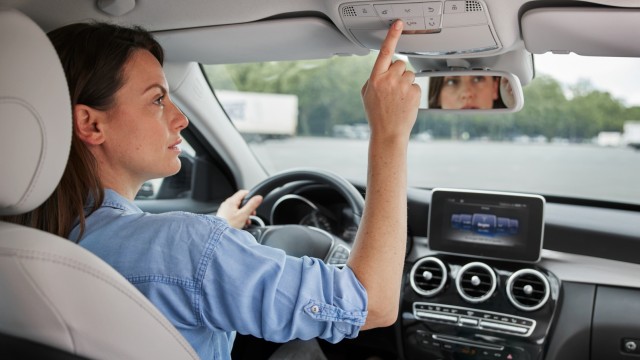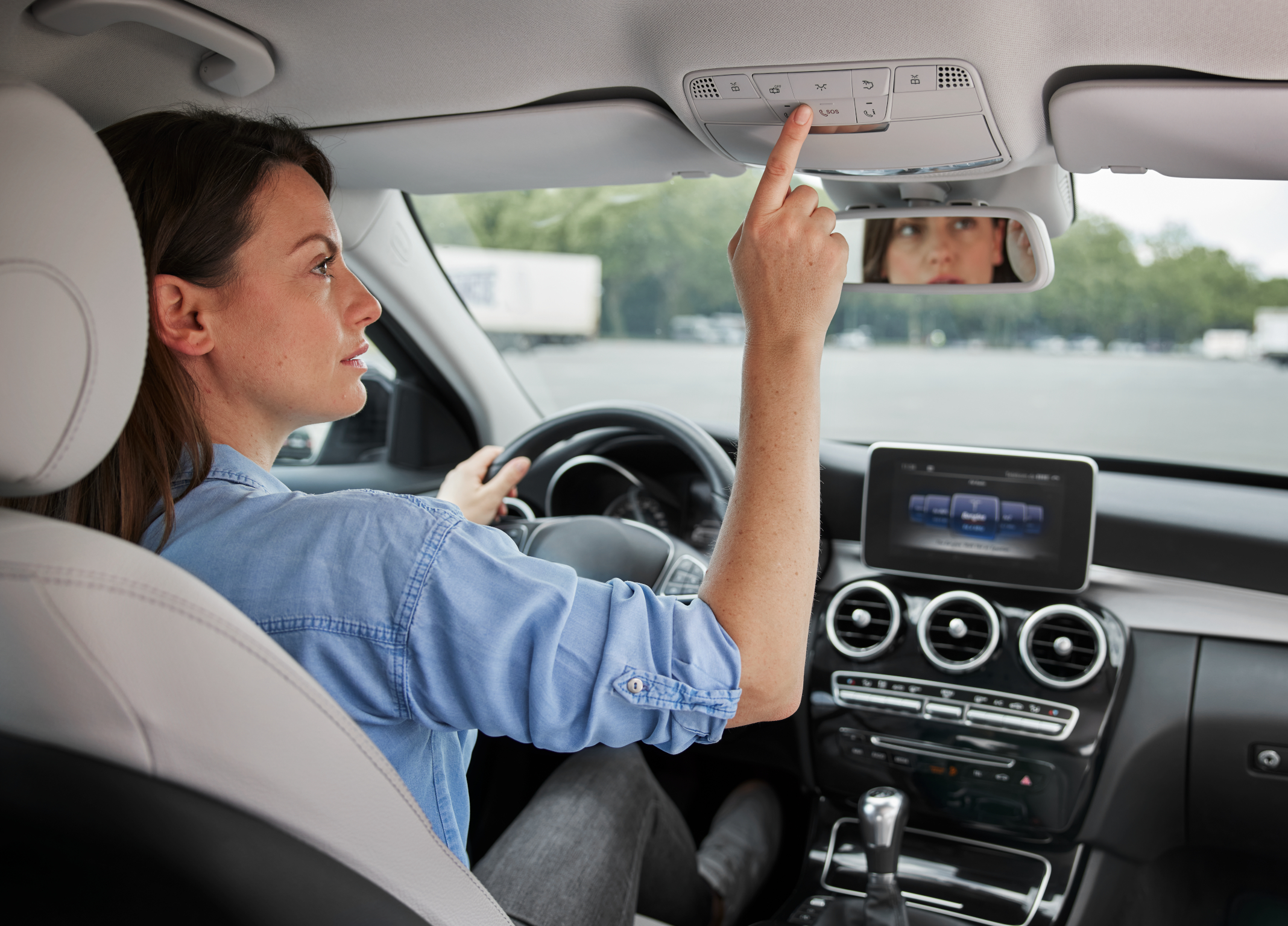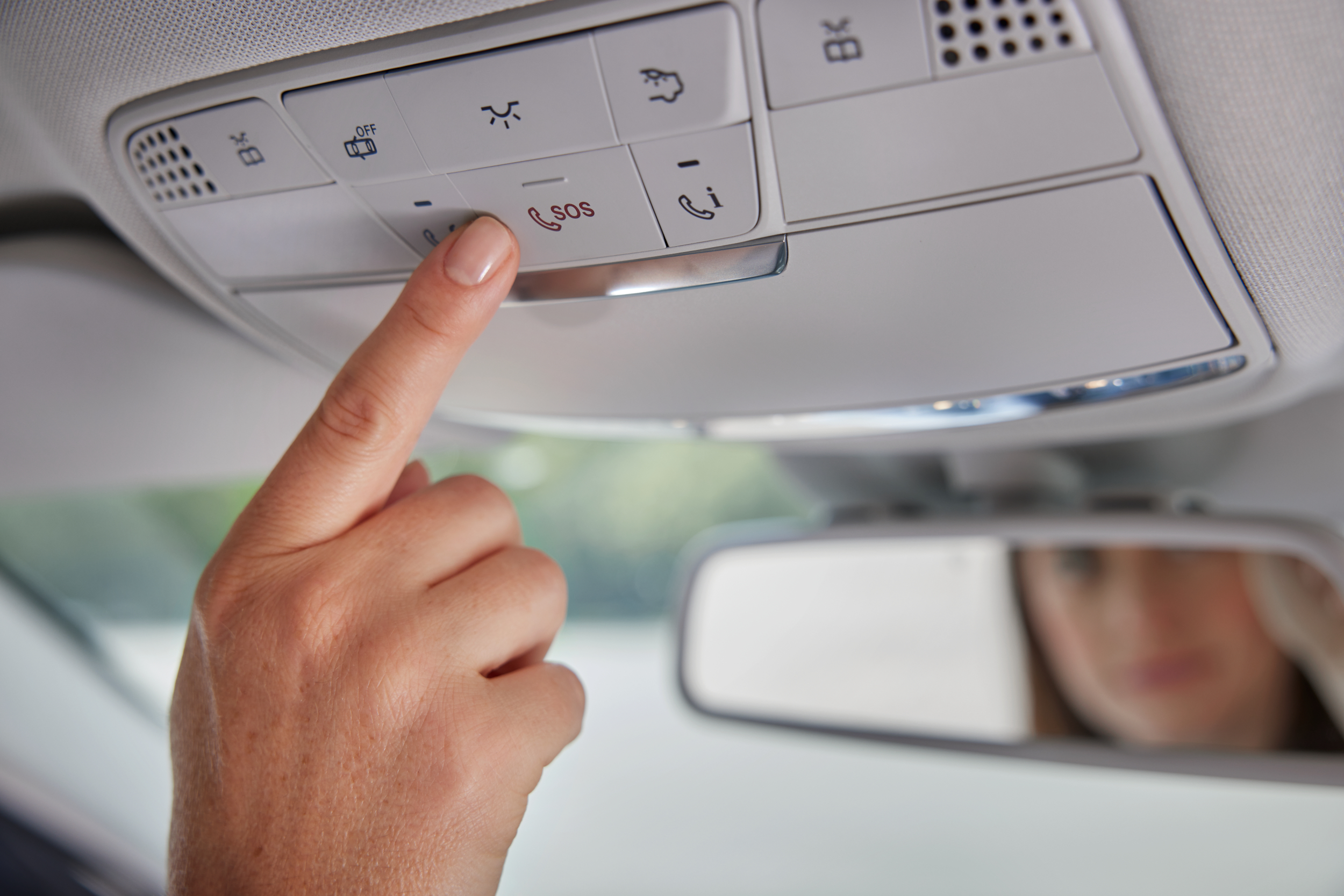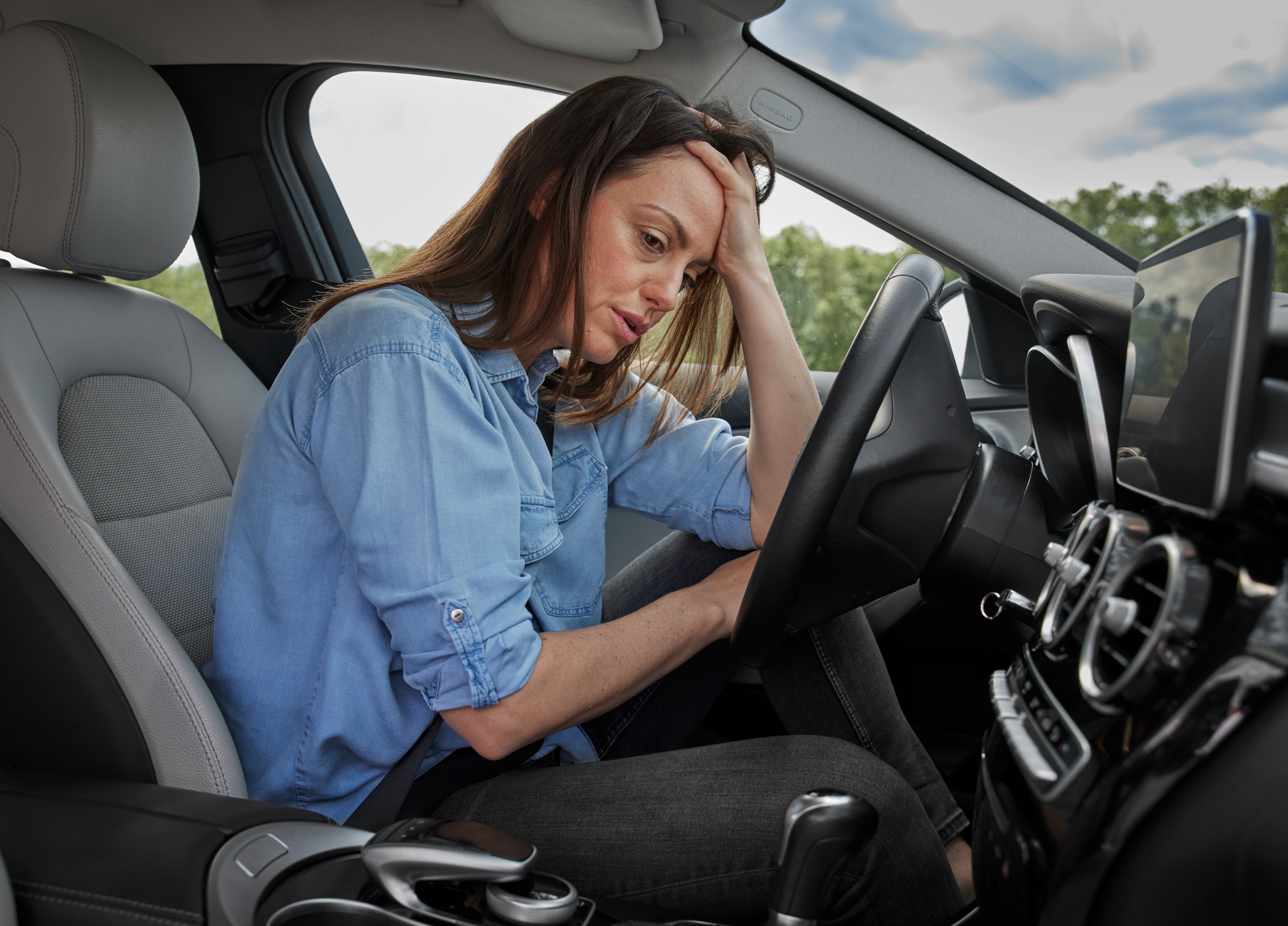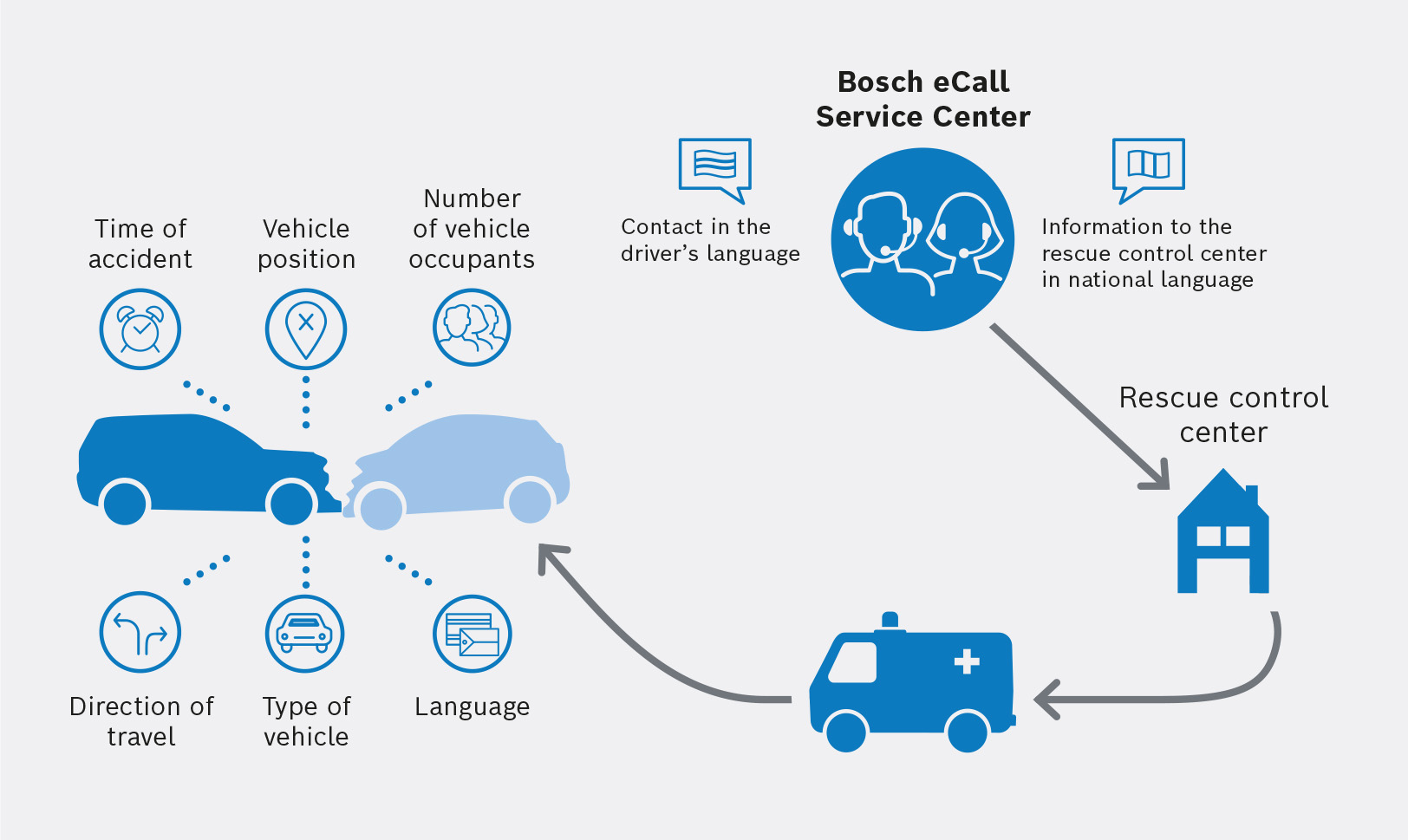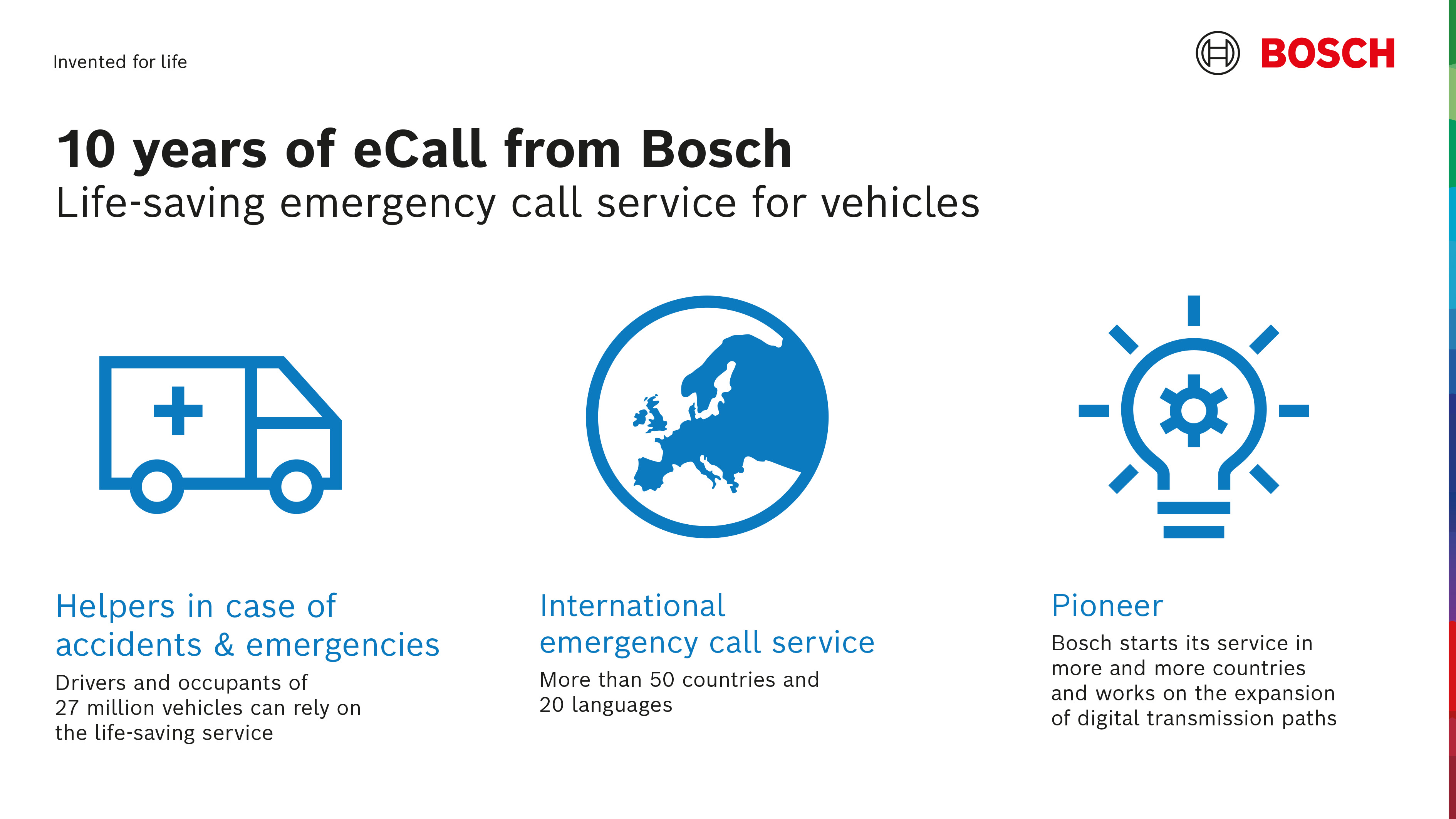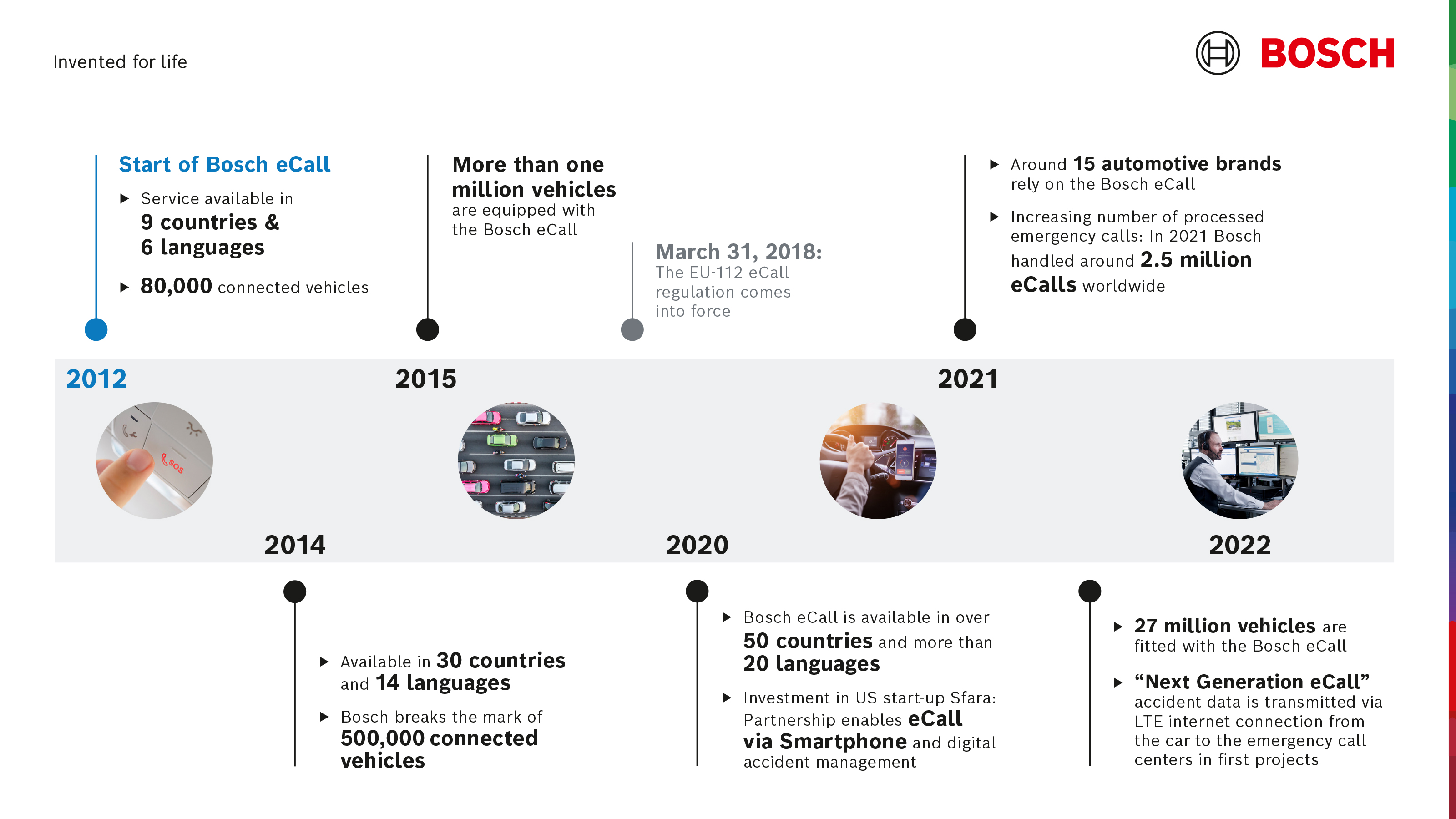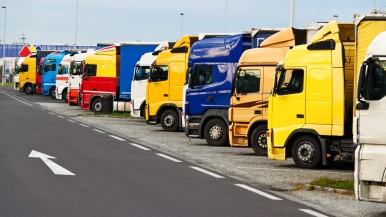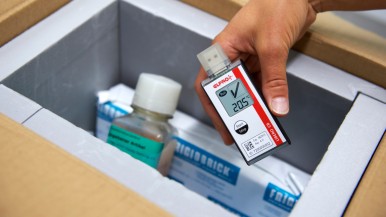Frankfurt am Main - Black ice on the highway. A vehicle leaves the road, flips over and slides down an embankment. There's no one around to witness the accident. "Emergency Call", known as eCall for short, was developed for situations precisely like this. In the event of an accident or emergency situation, the emergency call system for vehicles establishes a voice connection to an emergency call point to request rapid assistance either automatically or at the push of a button. Bosch Service Solutions is a leading international provider of this life-saving service. Ten years ago, on behalf of Mercedes-Benz, the service provider developed one of the first integrated emergency call services that went on to become a global success. "In June 2012, the service went live in nine countries and six languages. Today, it is already available in more than 50 countries and more than 20 languages – and there are more and more. Currently, around 27 million cars from more than 15 car brands have the Bosch emergency call service fitted," explains Stefan Gross, Head of Mobility Services at Bosch Service Solutions. In the past ten years, the company has processed over eleven million eCalls. As a pioneer in this field, it is also constantly bringing innovations to the market, most recently the smartphone-based eCall.
Bosch Service Solutions is a leading global supplier of Business Process Outsourcing for complex business processes and services. Using the latest technology and the Internet of Things, the Bosch division develops integrated and innovative service solutions in the areas of Mobility, Monitoring, and Customer Experience. Around 10,000 associates at 36 locations support national and international customers in around 40 languages, primarily from the automotive, logistics and pharmaceutical sectors as well as information and communication technology.
Additional information is available online at www.boschservicesolutions.com and www.Bosch-eCall.com
The Bosch Group is a leading global supplier of technology and services. It employs roughly 418,000 associates worldwide (as of December 31, 2024). The company generated sales of 90.3 billion euros in 2024. Its operations are divided into four business sectors: Mobility, Industrial Technology, Consumer Goods, and Energy and Building Technology. With its business activities, the company aims to use technology to help shape universal trends such as automation, electrification, digitalization, connectivity, and an orientation to sustainability. In this context, Bosch’s broad diversification across regions and industries strengthens its innovativeness and robustness. Bosch uses its proven expertise in sensor technology, software, and services to offer customers cross-domain solutions from a single source. It also applies its expertise in connectivity and artificial intelligence in order to develop and manufacture user-friendly, sustainable products. With technology that is “Invented for life,” Bosch wants to help improve quality of life and conserve natural resources. The Bosch Group comprises Robert Bosch GmbH and its roughly 490 subsidiary and regional companies in over 60 countries. Including sales and service partners, Bosch’s global manufacturing, engineering, and sales network covers nearly every country in the world. Bosch’s innovative strength is key to the company’s further development. At 136 locations across the globe, Bosch employs some 87,000 associates in research and development.
Additional information is available online at www.bosch.com, www.bosch-press.com.

